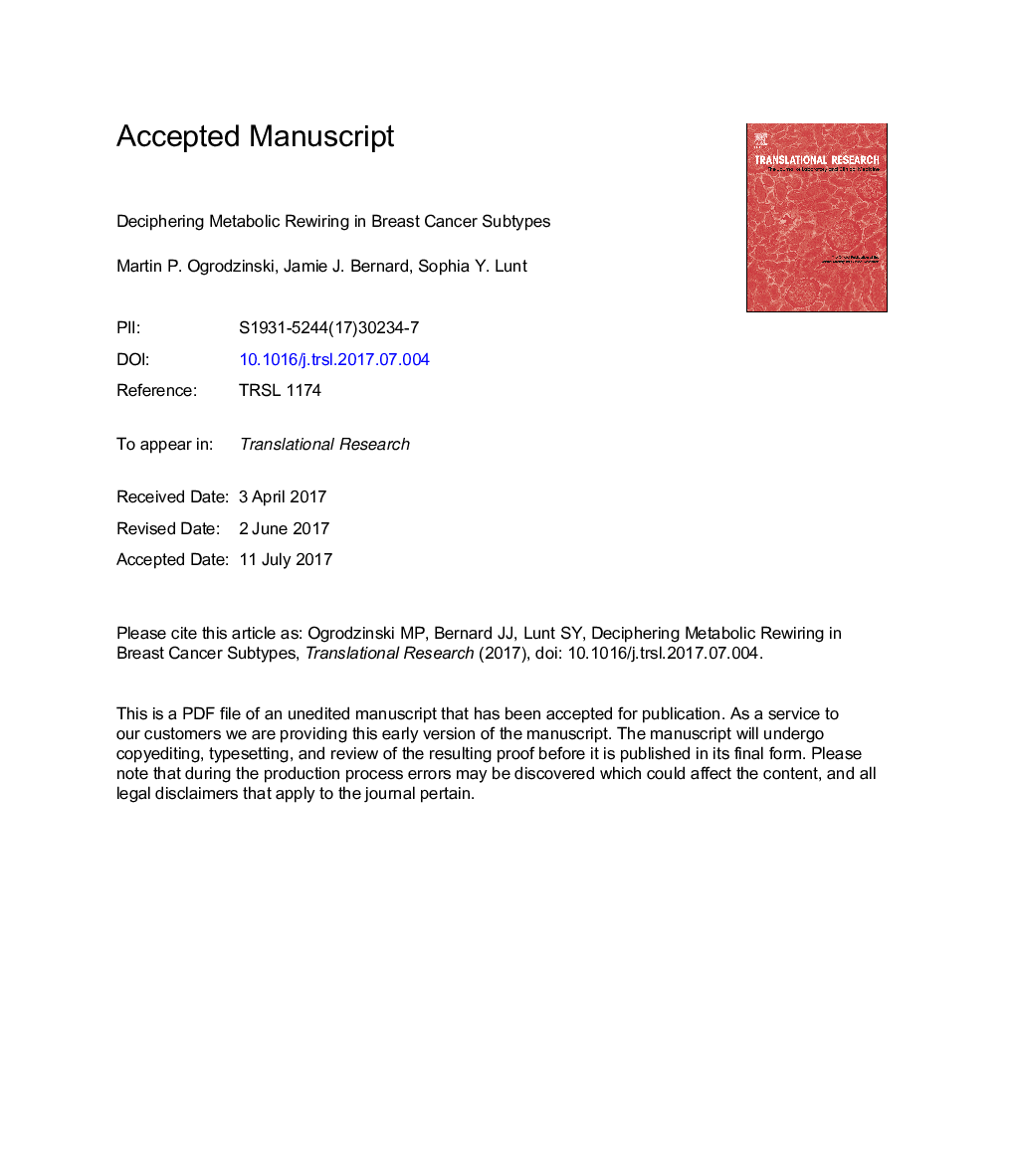| Article ID | Journal | Published Year | Pages | File Type |
|---|---|---|---|---|
| 8769067 | Translational Research | 2017 | 45 Pages |
Abstract
Metabolic reprogramming, an emerging hallmark of cancer, is observed in breast cancer. Breast cancer cells rewire their cellular metabolism to meet the demands of survival, proliferation, and invasion. However, breast cancer is a heterogeneous disease, and metabolic rewiring is not uniform. Each subtype of breast cancer displays distinct metabolic alterations. Here, we focus on unique metabolic reprogramming associated with subtypes of breast cancer, as well as common features. Therapeutic opportunities based on subtype-specific metabolic alterations are also discussed. Through this discussion, we aim to provide insight into subtype-specific metabolic rewiring and vulnerabilities that have the potential to better guide therapy and improve outcomes for patients.
Keywords
SHMT2PDXPAM50IGF-1ASsMCTGPCATP citrate lyaseMTHFD2OTCmTORASCT2TCAHIF-1NADPHPKM2IBCPtdChoPKM1PHGDHpyruvate kinase M2 isoformPSAT1PSPHHER2RRM2SHMT1TNBCPChoPI3KCAFHIFsNAD+NADP+ROSPatient-derived xenograftargininosuccinate synthetaseAkttricarboxylic acidfatty acid synthaseOrnithine transcarbamylaseACLInflammatory breast cancerTriple-negative breast cancerbody mass indexBMIhypoxia-inducible factorshypoxia-inducible factor-1insulin-like growth factor 1FasnphosphatidylcholinePhosphatidylinositol 3-kinasePhosphoserine phosphatasephosphoglycerate dehydrogenasephosphocholineCancer-associated fibroblastslactate dehydrogenaseLDHmonocarboxylate transporterNADHnicotinamide adenine dinucleotide reducednicotinamide adenine dinucleotide phosphate reducedmammalian target of rapamycinprotein kinase BglycerophosphocholineReactive oxygen speciesEstrogen receptorHuman epidermal growth factor receptor 2Progesterone receptor
Related Topics
Health Sciences
Medicine and Dentistry
Medicine and Dentistry (General)
Authors
Martin P. Ogrodzinski, Jamie J. Bernard, Sophia Y. Lunt,
